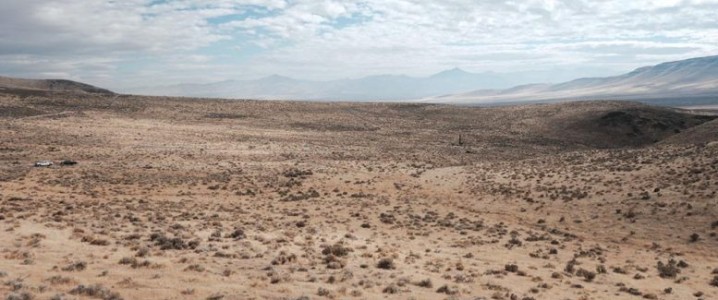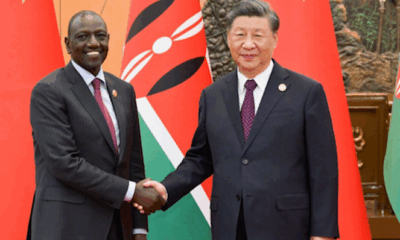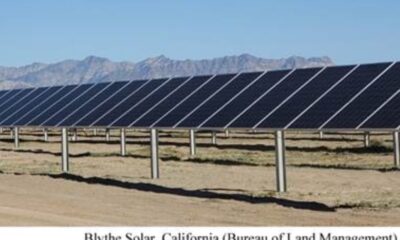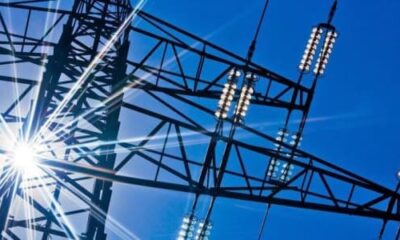Business
Trump Seeks 10% Stake in Thacker Pass Lithium Project

The U.S. Administration is actively pursuing a 10% equity stake in the Thacker Pass lithium project located in Humboldt County, Nevada. This initiative, led by the Trump Administration, aims to strengthen the domestic supply chain for critical minerals, particularly as the United States seeks to reduce its dependence on China, which currently dominates the global market for critical metals and rare earth elements.
According to reports from Reuters, the Trump Administration is negotiating with Lithium Americas Corp., the company overseeing the Thacker Pass project. This negotiation includes a potential $2.26 billion loan from the U.S. Department of Energy to support the project’s development. The Thacker Pass facility is anticipated to significantly enhance the U.S. lithium supply, with an expected design capacity of 40,000 tonnes per year of battery-quality lithium carbonate. If successful, it could become the largest lithium supply project in the Western Hemisphere.
The Thacker Pass project is not only aimed at bolstering the U.S. lithium supply but also at facilitating a comprehensive domestic battery supply chain, which is crucial for national security and economic stability. In this context, General Motors (GM) has already invested in the project, acquiring a 38% stake for $625 million last year.
The request for an equity stake reportedly surfaced during discussions regarding the loan’s repayment schedule. A White House official stated, “President Trump supports this project. He wants it to succeed and also be fair to taxpayers,” emphasizing the Administration’s commitment to ensuring that taxpayer money is utilized effectively. Following the news of this potential investment, shares of Lithium Americas surged by 80% in after-hours trading.
The U.S. government’s direct involvement in the Thacker Pass project reflects its growing emphasis on securing domestic sources of critical minerals. This strategy is underscored by an earlier partnership between the U.S. Department of Defense and MP Materials Corp., which aims to establish a domestic rare earth magnet supply chain. The Department of Defense will acquire a 15% stake in MP Materials as part of a multibillion-dollar investment package.
The International Energy Agency (IEA) has raised concerns about the concentration of critical mineral supplies, primarily in China, which controls around 70% of the refining capacity for 19 of the 20 minerals analyzed. The IEA warns that this concentration poses significant risks, including price volatility and potential supply disruptions. Although prices for critical minerals have decreased from the highs experienced in 2021 and 2022, the reliance on a few dominant producers remains a critical issue.
In light of these factors, the Trump Administration’s bid for a stake in the Thacker Pass lithium project is a strategic move to bolster the U.S. position in the global minerals market. As the country continues to seek independence from foreign suppliers, particularly China, such investments are seen as essential for future economic resilience and sustainability.
-

 Entertainment3 months ago
Entertainment3 months agoAnn Ming Reflects on ITV’s ‘I Fought the Law’ Drama
-

 Entertainment4 months ago
Entertainment4 months agoKate Garraway Sells £2 Million Home Amid Financial Struggles
-

 Health3 months ago
Health3 months agoKatie Price Faces New Health Concerns After Cancer Symptoms Resurface
-

 Entertainment3 months ago
Entertainment3 months agoCoronation Street’s Carl Webster Faces Trouble with New Affairs
-

 Entertainment3 months ago
Entertainment3 months agoWhere is Tinder Swindler Simon Leviev? Latest Updates Revealed
-

 Entertainment4 months ago
Entertainment4 months agoMarkiplier Addresses AI Controversy During Livestream Response
-

 Science1 month ago
Science1 month agoBrian Cox Addresses Claims of Alien Probe in 3I/ATLAS Discovery
-

 World2 weeks ago
World2 weeks agoBailey Announces Heartbreaking Split from Rebecca After Reunion
-

 Health4 months ago
Health4 months agoCarol Vorderman Reflects on Health Scare and Family Support
-

 Entertainment4 months ago
Entertainment4 months agoKim Cattrall Posts Cryptic Message After HBO’s Sequel Cancellation
-

 Entertainment3 months ago
Entertainment3 months agoOlivia Attwood Opens Up About Fallout with Former Best Friend
-

 Entertainment2 weeks ago
Entertainment2 weeks agoCoronation Street Fans React as Todd Faces Heartbreaking Choice





















